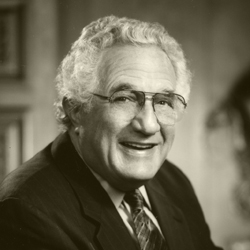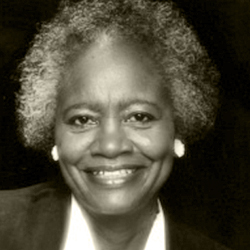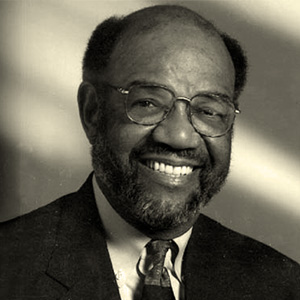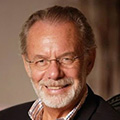From bustling urban centers to tight-knit rural communities, Oklahoma is home to a diverse tapestry of visionary individuals who are dedicated to making a positive impact in their neighborhoods and beyond.
Through their work, lives have been improved, communities have been transformed, and the state of Oklahoma is all the better for their selflessness and dedication to their fellow man.
Join us as we delve into the stories of these remarkable leaders, explore their achievements, gain insights into their motivations and aspirations, and learn vital lessons we can glean from their legacies and understand how we can apply them to our own lives and communities.
David Bernstein
A selfless and devout Jewish man, David Bernstein was dedicated to the causes of mental health, immigrant support and outreach, and housing, and education.
Much of David’s personality and devotion to the betterment of his community came after the death of his brother in the Korean War. A kind, young Orthodox rabbi came to run the Hebrew school that David attended. He saw the fractured, grief-stricken state that David and his family were in and decided to provide David with a scholarship to an Orthodox camp in the Catskill Mountains in New York.
It was there that David began to again form bonds with peers and recognize that, despite any outward differences, people are simply people. And from this recognition, David’s life in service of the underserviced and overlooked began.
Throughout his life, David drew from this recognition and the calling that’s placed upon all followers of Judaism — to repair the world. This led him down a path of rediscovering who he was, what he wanted from life, and how he was going to pursue his calling.
This work of self-examination, and realizing the world of business wasn’t for him, led him to The University of Tulsa. There he studied psychology and formed the educational roots he would draw from throughout his life’s work.
Through his tenacity and love for his fellow man, David Bernstein transformed the landscape of mental healthcare and suicide prevention during his time as Executive Director of the Tulsa Mental Health Association, where he began one of the first and most successful suicide prevention hotlines in the Southwest.
“Until that time, people didn’t know what to do with someone who is suicidal. They opened up a center that was a walk-in clinic, but also you could call them on the telephone. People didn’t believe, especially in the field of counseling, that you could counsel somebody on the telephone, let alone talk him out of committing suicide because you can’t watch them if you are talking to them on the phone and you couldn’t see their physical actions. They found out that you could do it.“
— David Bernstein
Chapter 10
But the work to answer this calling wasn’t without its trials and tribulations. Throughout his life and work, David and his family faced severe discrimination as they continued their work in service of underserved communities.
“When we got out there, I was with my very young bride. I told the man at the front desk that I had made a reservation under Rayco and gave him my name, David Bernstein. He looks down and says, “I’m sorry we don’t have any rooms and we don’t have your name down.” I said, “That’s impossible.” They said, “We can’t put you up.” I didn’t know why. I guess in the back of our heads we all knew. If you read Gentleman’s Agreement, you’ll know the story of what it was in those days. So we found a place to stay in a little motel and it was fine. It didn’t interrupt our honeymoon. But it was a situation that I will never forget.”
— David Bernstein
Chapter 7
Despite the resistance, setbacks, and the trials they faced, David’s legacy is etched in the countless lives and communities his efforts have helped improve. Among his many achievements are:
Creation of the first suicide prevention hotline in the Southwest United States
Executive Director of the Tulsa Mental Health Association
Executive Director of the Community Service Council of Greater Tulsa
Creation of the YWCA’s Multicultural Service Center
Establishment of the first coalitions for spousal & child abuse in Tulsa
Executive Director of the Jewish Federation of Tulsa
Recipient of the Oklahoma Human Rights Commission Award
… and many, many more.
Loretta Young Jackson
Verden, Oklahoma resident Allen Toles was an African American farmer who had become the owner of his land through the Homestead Act of 1862.
He built Verden Separate School on his property in 1910 as a school for black children. When the school was consolidated with Lincoln Separate School in Chickasha, the school was no longer used except as a workshop and storage building.
About 90 years later, the abandoned schoolhouse was found by Loretta Young Jackson and, under her guidance, the school was moved to Chickasha where it stands on Ada Sipuel Ave. The school is visited by hundreds of students each year and serves as an education tool on race relations.
The school was restored and later placed on the National Register of Historic Places in 2005.
Loretta worked in the area of real estate and mortgage banking and became a leader on public issues in Chickasha and the state. Among her many accomplishments she is the founder of the Loretta Jackson African American Historical Society.
For future generations of community leaders, she holds simple yet powerful advice: Eliminate “I can’t” from your mind.
“No, there is no “I can’t” in my mind. I will find a way, there is a way to accomplish whatever comes before me.”
— Loretta Young Jackson
Chapter 16
Loretta holds many honors for all her accomplishments as one of the most decorated women in Oklahoma history for her service to the state and local communities. Her accomplishments include:
The first woman to serve on the State Banking Board
National Education Foundation Board of Directors
President of the American Association of University Women
Member of President Jimmy Carter’s Conference on Black Community Concerns
Held 28 positions throughout local, county, state, and national politics
Member of the Science & Arts Board of Regents
… and many, many more honors and accomplishments throughout her lifetime of service to Oklahoma and its people.
Julius Pegues
Julius Pegues was born in Tulsa, Oklahoma on May 5th, 1935. The son of two hard-working parents, Allen Pegues and Patella Pegues, Julius was one of 8 children.
Always supported by his mother and father to achieve academically, Julius worked hard in school. He was fortunate to have supportive teachers all throughout his time in elementary school at Dunbar Elementary all the way through high school at Booker T. Washington. During his academic career, Julius was frequently at the top of his classes — which helped him secure and maintain his spot on his schools’ basketball teams.
This excellence in academics and sports, however, wasn’t without its tribulations. Following his successful high school career, and though he clearly demonstrated superior athletic ability, the University of Oklahoma, Oklahoma State, nor the University of Tulsa would accept him as they didn’t allow black players on their basketball teams.
Despite this discrimination, Julius went on to The University of Pittsburgh, becoming the first black player in school history. Julius quickly transitioned from a walk-on to a scholarship player after averaging 20 points per game in his first month. He finished as one of only 34 players in the program's history to score 1,000 career points.
With this undeniable success in college basketball, the NBA's St. Louis Hawks picked Pegues in the fourth round of the 1958 draft, but he had to serve in the military as he was in the Air Force ROTC at Pittsburgh.
Studying Meteorology at St. Louis University, he served as a weatherman within the Air Force. This experience served him well later in life during his time as an advisor for the Federal Aviation Administration as a designated engineering representative, helping the FAA ensure the quality of aircraft and other engineered aviation components.
As a lifelong activist — especially concerning education, public health, and civil rights — Pegues helped desegregate the Tulsa Public School system. His lifetime of activism and service cannot be overstated. Pegues served on the boards of the Tulsa NAACP, Tulsa Urban League, Tulsa Comprehensive Health Services, Tulsa Housing Authority, and Tulsa Board of Education’s Humans Relations Committee, the City of Tulsa Economic Development Commission, and many others.
This body of work ultimately culminated in the founding of the Greenwood Rising Black Wall Street History Center, which shares the story of Black Wall Street, the Tulsa Race Massacre, and how Greenwood is again rising and inspiring a new generation of Americans to pursue unity and reconciliation in the face of division.
Julius Pegues died on March 29th, 2022. Leaving an indelible legacy in the hearts and minds of Tulsans, aspiring athletes, and students, Julius shares what he considers to be one of the most important lessons for the next generation of community leaders:
“To treat every individual like you want to be treated. That's the most important thing, is to see a person for what they are, okay? And don't prejudge people. Get to know someone, get to know them first; and don't just lump everyone into one category. Find out about a person's character and what that person is all about before you categorize them. And just have respect for your fellow man…
For everyone. Everyone: respect your fellow man. If we had more respect for one another, we wouldn't have half the problems that we have. But people tend to do things and then try to cover up for it, try to justify. Although they know it's wrong, they try to justify what they've done, which makes it worse instead of facing up to what they've done and developing respect for everybody.”
— Julius Pegues
Chapter 11
An accomplished man by any metric, Julius’ achievements also include:
Board Member of the Tulsa NAACP
Board Member of the Tulsa Urban League
Board Member of Tulsa Comprehensive Health Services
Board Member of Tulsa Family and Children’s Services
Board Member of Tulsa Housing Authority
Member of the City of Tulsa Economic Development Commission
Member of the Coalition for Quality Education
Led the Commission to plan The John Hope Franklin Memorial Museum of Reconciliation
Recipient of the Oklahoma Education Association Tuskahoma Brown Miller Citizens Award
Recipient of the Outstanding Young Men of American Award
Recipient of the North Tulsa Optimist of the Year Award
Recipient of the YWCA Community Service Award
Recipient of the Sigma Gamma Rho Community Service Award
… and countless other awards and recognitions that chronicle his decades of tireless service to the community.
Lessons Future Generations Can Learn from Some of Tulsa’s Greatest Community Leaders
Throughout our time together in this article, we’ve met some of Oklahoma’s most dedicated community leaders. While each of their paths in life — and methods of service — were different from one another, there were common lessons from their legacies we can apply to our own lives.
-
You must eliminate “I can’t…” from your dictionary.
No matter the causes they supported, every community leader was best by obstacles, discrimination, and a sea of nay-sayers saying that what they were trying to accomplish wasn’t worth the time.
This will always be the case. There will always be people sitting on the sidelines criticizing the efforts — for any number of reasons — of those who would seek to make positive, lasting changes. It’s up to future community leaders like you to ignore their chattering, keep your purpose at the forefront of your focus, and press onward.
Just like Loretta Young Jackson, you must eliminate “I can’t” from your dictionary.
-
Mutual respect is at the heart of service.
As we learned from Julius Pegues, everything about community service is rooted in respect for your fellow man. Your, nor I, are better than any other person. And it’s on this even footing and mutual respect that all good works flow.
-
A great deal of soul-searching will be required of you.
Just like David Bernstein, who had to examine and re-examine his motivations, strengths, and talents all throughout his life, you too will learn more about who you are as you pour out your heart in service. Knowing what drives you, what you’re passionate about, and how those passions align with your strengths is at the core of knowing you’re pursuing the change you want to see in the world.
Closing
Thank you for your time and for joining us in meeting some of Oklahoma’s most influential community leaders. This piece serves only as an introduction, as there are many, many more community leaders over on our page dedicated to the very topic.
It’s through the generous gifts of readers like you that we’re able to make these learning center articles a reality. With your help, we can continue our mission to preserve and share Oklahoma’s history … one voice at a time.


